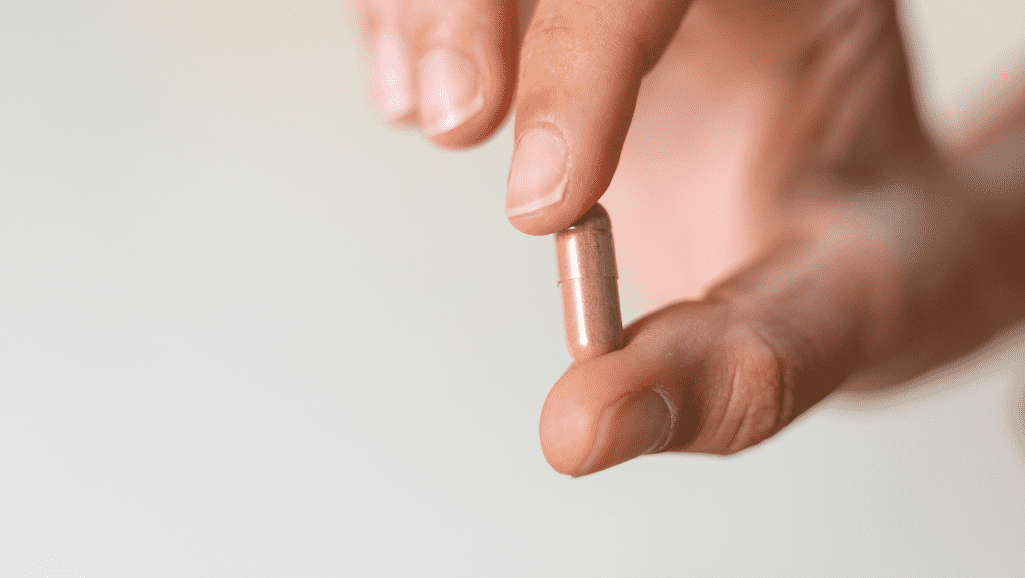Microdosing, or the practice of taking small, sub-perceptual doses of psychedelic substances such as psilocybin or LSD, has gained popularity in recent years as a way to enhance mood and cognitive function.
While the potential benefits of microdosing for mental health – including reduced anxiety and depression, improved focus and creativity, and increased well-being – have been widely reported, the long-term safety and effectiveness of this practice is not yet fully understood.
In this article, we will explore the scientific evidence and personal accounts of the potential benefits of microdosing for mental health, as well as the limitations of the current research and the potential risks and drawbacks.
The potential benefits of microdosing for mental health
There is a growing body of research and anecdotal evidence suggesting that microdosing may have a variety of potential benefits for mental health. Some people claim that microdosing has helped them reduce anxiety and depression, improve focus and productivity, and increase overall well-being.

A 2019 study saw 278 microdosers complete an online survey. The results showed that 26.6% of participants reported an improved mood and 14.8% reported increased focus.
A similar 2019 study found that people who microdose LSD or psilocybin self-reported an increase in creativity and open-mindedness.
Another survey found that some microdosers experienced decreased levels of depression and stress over a six-week period.
One placebo controlled study found that microdosing psilocybin has no noticeable effect on anxiety or depression. Another on LSD microdosing found ‘no residual effects’ on mood or cognition.
This study did find that microdosing psychedelic truffles produced a short-term improvement in divergent thinking and creativity, but no other outcomes were measured.
The most recent study on microdosing, published last month (June ’22), found that “psilocybin microdosers demonstrate greater observed improvements in mood and mental health at one month relative to non-microdosing controls”.
In addition to these findings, there are also numerous personal accounts from people who have used microdosing to improve their mental health. Many people report feeling more motivated, creative, and positive after microdosing, and some have even credited microdosing with helping them overcome chronic mental health conditions such as depression and anxiety.
It is not fully understood how microdosing produces these effects, but it is thought that psychedelics may work by increasing neuroplasticity and modulating serotonin levels in the brain. More research is needed to fully understand the mechanisms behind the potential benefits of microdosing for mental health.
The limitations of the current research on microdosing
While the potential benefits of microdosing for mental health have been widely reported, it is important to note that the current research on microdosing is limited and more research is needed to fully understand its effects.
One limitation of the current research on microdosing is that most studies have been small-scale and have not used placebo controls, making it difficult to draw definitive conclusions about the effectiveness of microdosing. In addition, the majority of the research has been based on self-reported data, which can be subject to biases and may not accurately reflect the true effects of microdosing.
Another limitation is that most of the research on microdosing has been conducted in healthy volunteers, rather than in people with mental health conditions. This means that it is not yet clear how microdosing may impact people with mental health conditions or how it may interact with other medications.
Given these limitations, it is important to be cautious when interpreting the current research on microdosing and to recognize that more research is needed to fully understand its potential risks and benefits. It is also important to consult with a healthcare professional before considering microdosing, as it may not be safe or appropriate for everyone.

Placebo effect?
In a paper published in the journal eLife in 2021, researchers found that although all psychological outcomes improved for the microdosing group over the month-long testing period, the same was true for the placebo group – with no significant differences between the two.
These results make it look like the benefits of microdosing are down to psychological expectations rather than pharmacological effects of the drug.
But not everyone is so convinced that the effects of microdosing can be fully down to the placebo effect. Many argue that microdosing is a difficult area to study. As the substances used are illegal in most countries, it’s difficult to study standardised doses in a clinical setting.
In a small, placebo-controlled dose-finding study from 2020, it was found that microdoses of LSD had beneficial effects on mood and attention for some participants, which were not explained by the placebo effect.
Another study found evidence of an increase in brain-derived neurotropic factor (BDNF), a protein linked to brain plasticity, a few hours after microdosing. While the study was not able to link this finding to any measures of wellbeing or cognition, it does show that something is happening within the brain.
Larger doses of psilocybin have previously been found to increase levels of BDNF in the brain, as has lion’s mane mushroom.
Interestingly, the placebo effect has also been suggested to be a powerful driver behind the effects of many antidepressants. One review looking at all the available published and unpublished (hidden by pharmaceutical companies) data revealed that most (if not all) of the benefits of antidepressants are due to the placebo effect.
Negative effects of microdosing
Although they’re not common, some people do report negative effects from microdosing, including:
- Increased emotionality
- Headaches
- Disrupted sleep
- Irritability
- Anxiety
- Tiredness
Larger doses of psilocybin
Psilocybin is the active ingredient in psychedelic mushrooms and has shown potential as a treatment for mental health conditions such as depression and anxiety.
Here are some of the proven benefits of psilocybin for mental health:
- Rapid and sustained symptom reduction: A number of studies have found that psilocybin can produce rapid and sustained reductions in symptoms of depression and anxiety in people with treatment-resistant conditions.
- Increased well-being and quality of life: Psilocybin has also been shown to improve measures of well-being and quality of life in people with depression and anxiety, as well as in healthy volunteers.
- Increased openness: Psilocybin has been found to increase openness, or the willingness to try new things and think outside the box, in healthy volunteers and in people with depression.
- Increased mindfulness and self-compassion: Psilocybin has been found to increase mindfulness and self-compassion, or the ability to be kind and understanding towards oneself, in people with depression and anxiety.

Microdosing and lion’s mane mushroom
Lion’s mane mushrooms (Hericium erinaceus) are a type of edible mushroom that is commonly used for its potential health benefits.
Prompted by world famous mycologist Paul Stamets, many people also use lion’s mane mushrooms in conjunction with psilocybin microdoses with the aim of enhancing the effects.
Lions Mane is a neurogenic mushroom, meaning, like psilocybin, it has to ability to promote the growth on new brain cells. In this way, it shares many of the same neurogenic qualities as psilocybin but with none of the psychedelic effects.
Not only can lion’s mane promote neuroplasticity and general wellbeing, it also protects against dementia, reduces symptoms of anxiety or depression, and helps repair nerve damage.
Se our range of high-quality Lion’s Mane extracts here.
Conclusion
Microdosing, or the practice of taking small doses of psychedelics like psilocybin to enhance mood and cognitive function, has gained popularity as a potential treatment for mental health conditions such as depression and anxiety.
While the current research on microdosing is limited and more research is needed to fully understand its effects, personal accounts suggest that it may have potential benefits for some individuals. It is important to recognise that microdosing may not be safe or appropriate for everyone.
Overall, the topic of microdosing for mental health is worth exploring further.







1 comment
Which is the best to take for anxiety and very poor sleep.